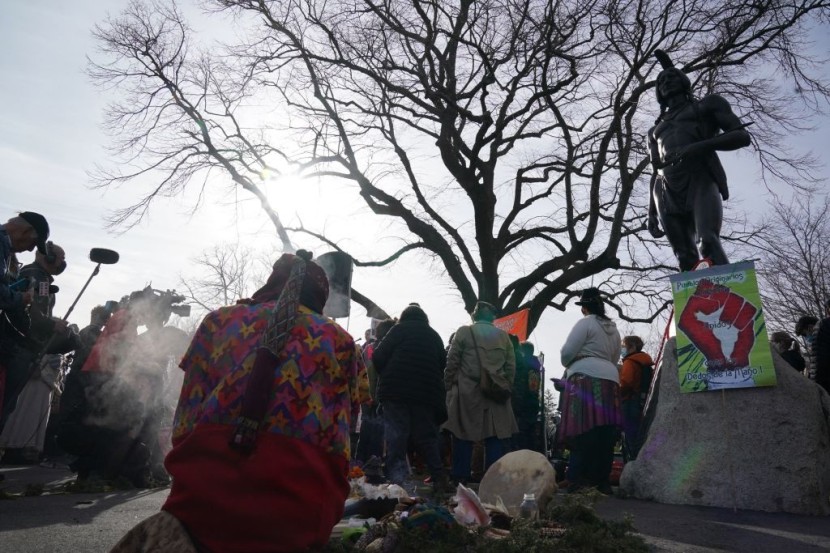
For most people, Thanksgiving is a day to celebrate, but for Native Americans, the holiday represents a time for mourning and honoring the victims of centuries of racism and mistreatment.
In Plymouth, Massachusetts, members of Native American tribes across New England gathered and mourned the lives that were lost to hundreds of years of cruelty. History recorded that European settlers allegedly brought disease and oppression to North America.
Native American History
Kisha James, the granddaughter of the event's founder, Wamsutta Frank James, and a member of the Aquinnah Wampanoag and Oglala Lakota tribes, said that Native people had no reason to celebrate the arrival of the Pilgrims on Thanksgiving.
"We want to educate people so that they understand the stories we all learned in school about the first Thanksgiving are nothing but lies. Wampanoag and other Indigenous people have certainly not lived happily ever after since the arrival of the Pilgrims," said James, Fox News reported.
Historians said that it was highly unlikely that anyone at the time of the first harvest feast in 1621 ate turkey in celebration of the holiday. The Wampanoags' alliance with the Pilgrims is also believed to have been less about cooperating together as a community and more about surviving in a time of drastic change.
Read Also : Donald Trump Thinks Joe Biden Needs To Take Cognitive Test Amid Latest Embarrassing Gaffe
The more pressing matter is that the United States does not mention the fact that the Indigenous people suffered greatly during their people's encounters with English colonists. Native Americans suffered from genocide to disease and theft of their land.
Thanksgiving was considered a holiday in 1637 when then-Governor John Winthrop of the Massachusetts Bay Colony proclaimed it to be a day to celebrate the safe return of the men who went to fight the Pequot in Mystic, Connecticut. Journalist Matt Juul explained that "the fighting led to the enslavement and massacre of over 700 men, women, and children from the New England-based tribe, a bloody precursor to what would be centuries of strife for Native peoples in the U.S.," CNN reported.
Thanksgiving as Day of Mourning
Another Native American, Dennis W. Zotigh, who is a member of the Kiowa Gourd clan and Ohkay Owingeh Pueblo Winter Clan, also claimed Thanksgiving as a day of mourning. He is a descendant of Sitting Bear and No Retreat, two principal war chiefs of the Kiowas.
He said that the majority of Natives did not see Thanksgiving as a celebratory holiday, but instead, remember it as the attempted genocide of their people. Zotigh is also a writer and cultural specialist at the Smithsonian's National Museum of the American Indian in Washington, D.C.
New England's United American Indians meet each other once a year at Plymouth Rock on Cole's Hill to mourn their ancestors. The people gather at the feet of a statue depicting Grand Sachem Massasoit of the Wampanoag. They spend their day remembering and reflecting, in the hopes that the United States will never let itself forget the atrocities, sacrifices, and tragedies that befell its Native people for hundreds of years in the hands of the people whom they considered were the perpetrators of their people's suffering, USA Today reported.
Related Article:








